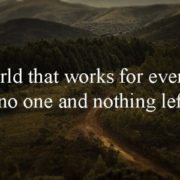Sacred Origin of Money
People lived a life without money. They existed for years without money, which tells us money is an invention. Money was invented to make life easier for people to trade with one another. It was getting more inconvenient to trade with other people using livestock and perishable items. Money was a tool for people to do business. It is but a tool created and designed by God, through the wisdom He imparted among His people to establish a communal way of life.
Merriam-Webster Dictionary defines money as “something generally accepted as a medium of exchange, a measure of value, or a means of payment,” but it is much more than that, and several references to money throughout Scripture beg us to look at it from a number of angles.
Let’s visit a familiar verse: A feast is made for laughter, and wine maketh merry: but money answereth all things (Ecc. 10:19). This is the same preacher who tells us in Ecclesiastes5:10, He that loveth silver shall not be satisfied with silver, nor he that loveth abundance with increase: this is also vanity.
King Solomon gives us conflicting views about money because people gave money some form of economic, political, social, and even spiritual power that we need to be aware of. Otherwise, it overpowers us. Money can dictate futures and open doors, but ultimately, we need to recognize that money is a human invention. It is not God. It cannot take the place of God. A huge chunk of the Holy Scriptures tells us how to view and to use the money for His glory. When we are able to develop a biblical perspective about money, we’ll be able to understand where King Solomon is coming from — money is a well; what you get out of this well depends on the heart of the person drawing from it.
The Book of the Month Club is a powerful group that opens your mind to the strongest possibilities. Go and join the club now!
How do you see money? Check how your perspective of money correlates with your heart.












